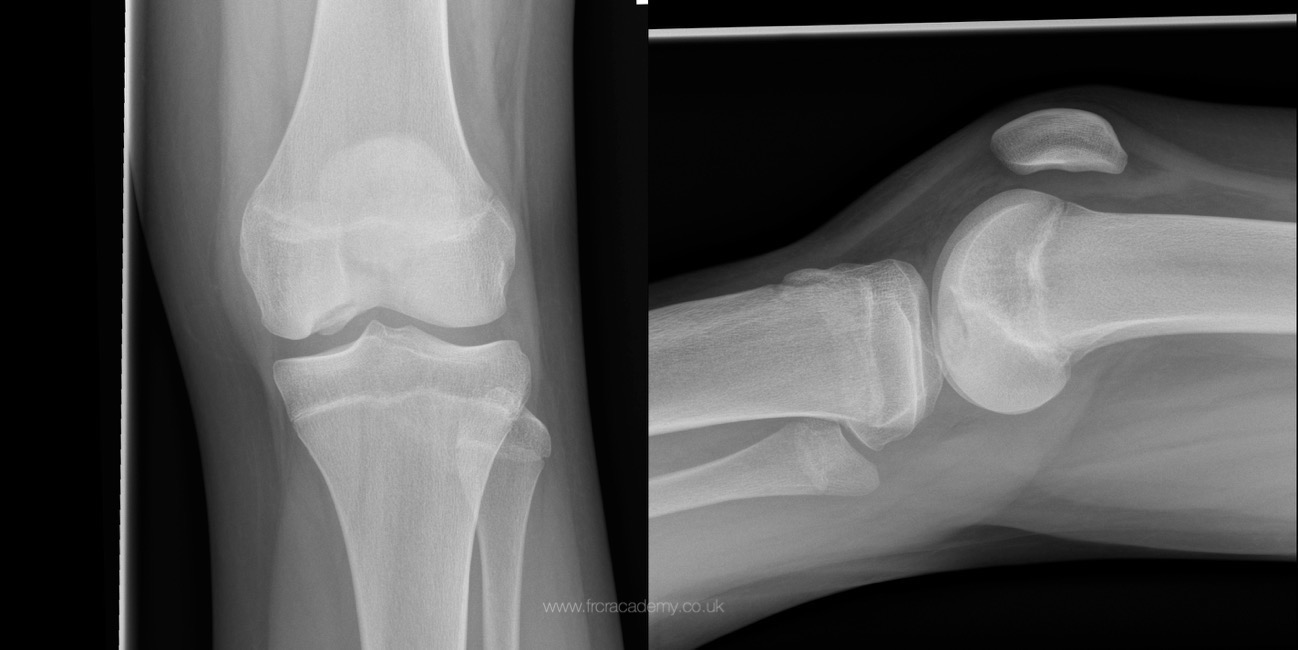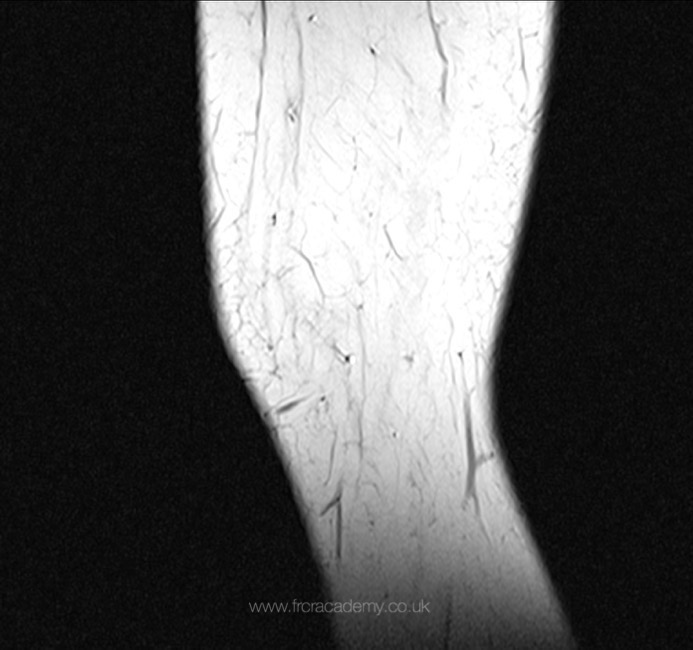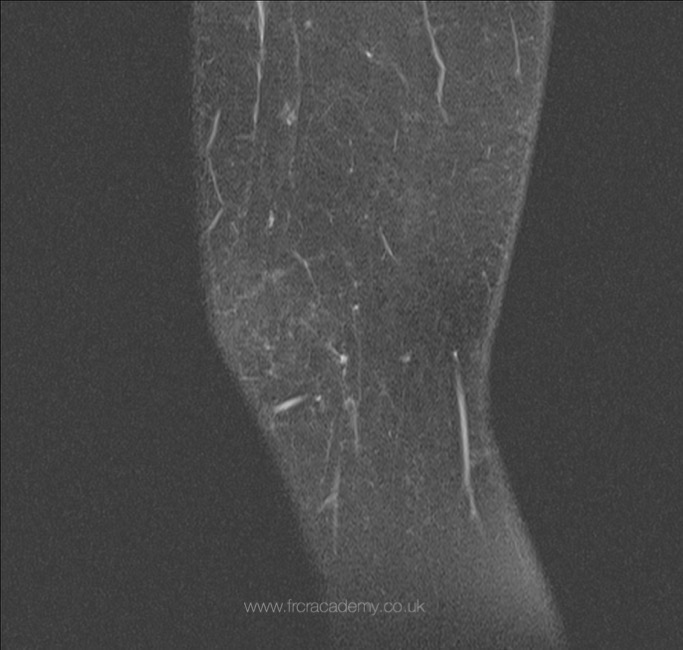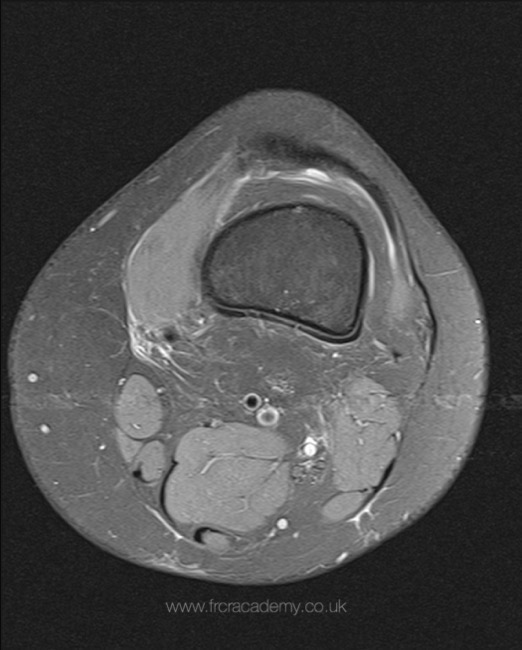Case 1: 14yr old boy with a painful knee and recent injury
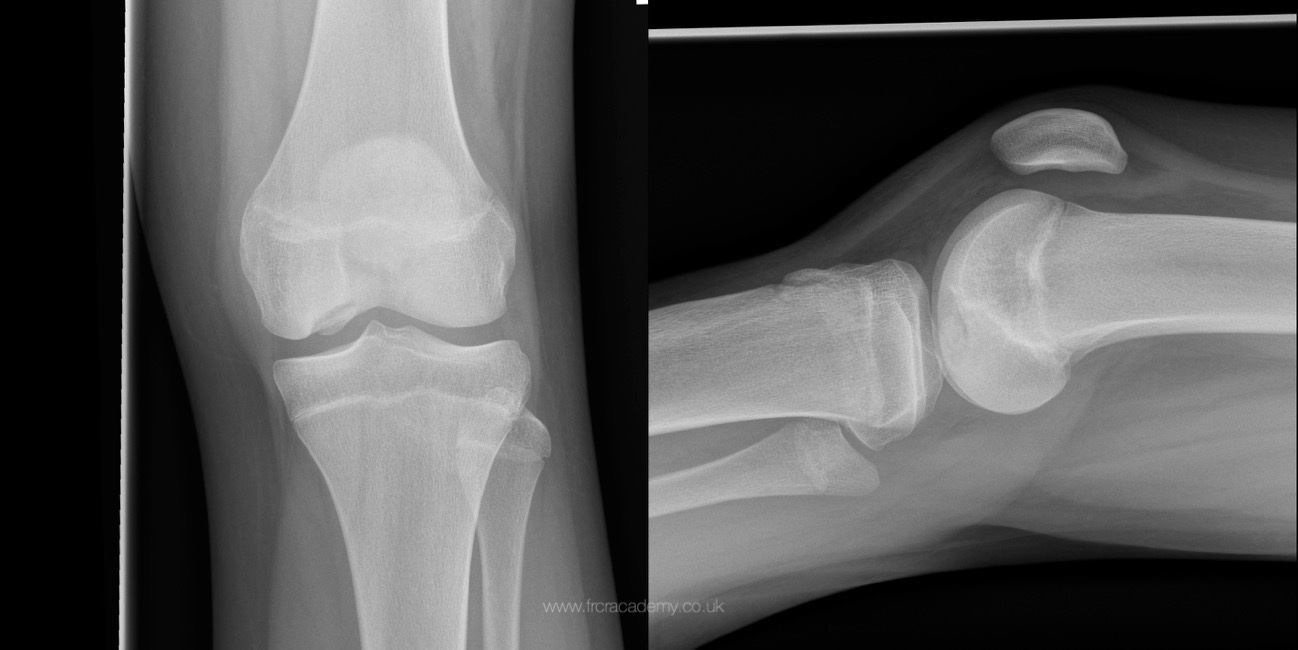
|

|
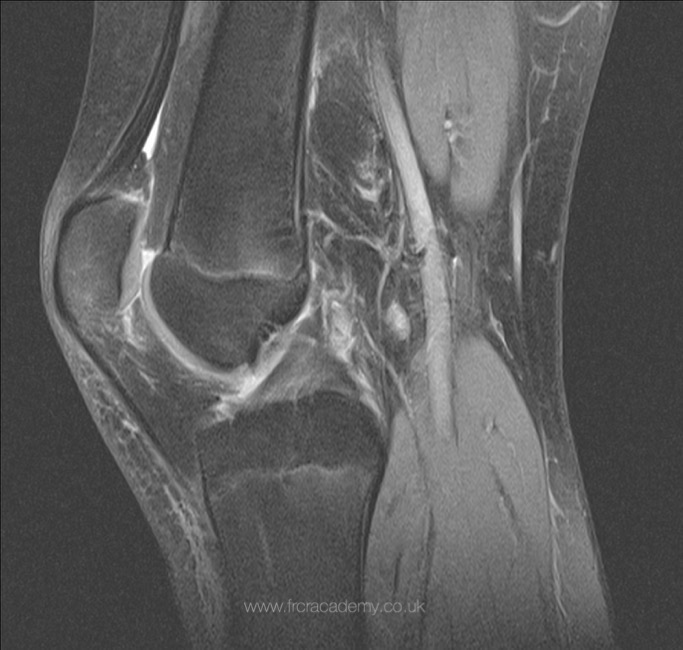
|
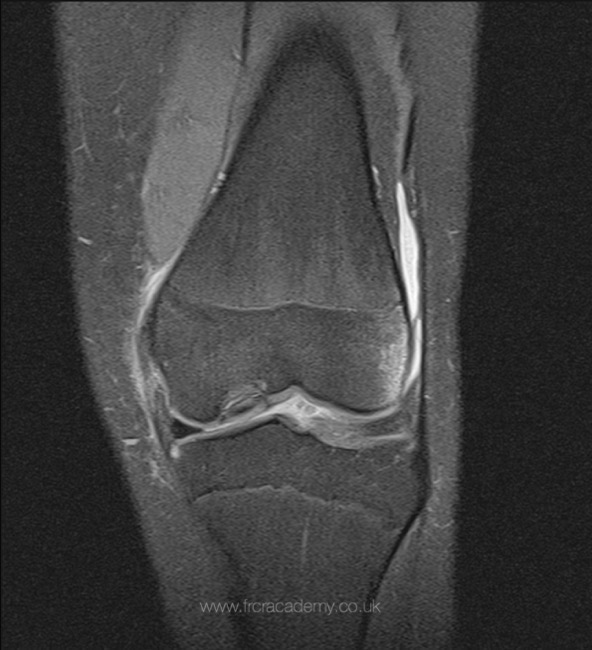
|
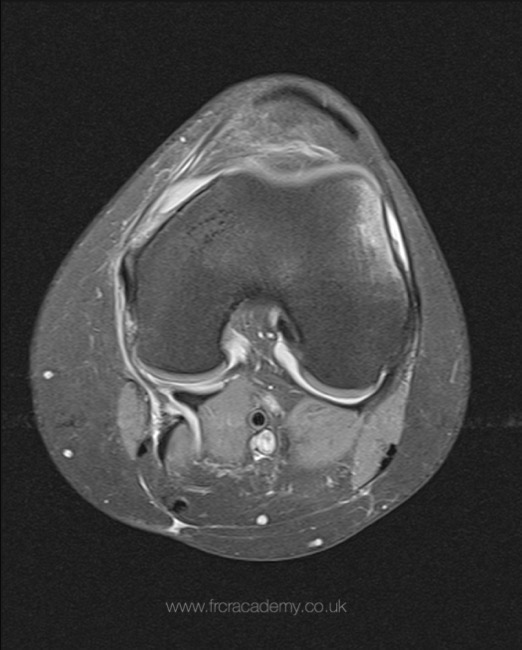
|
Observations & Interpretations
MRI: Low T1 signal osteochondral defect meidal femoral condyle, with some surrounding oedema and an associated loose body. On PD fat sat imaging, there is bone marrow oedema in medial aspect of patella and lateral femoral condyle. There is a small joint effusion.
Principal Diagnosis
Osteochondritis DissecansRecent Patellar dislocation
Differential Diagnosis
Acute traumatic osteochondral fracture.Spontaneous osteonecrosis of the knee (SONK) - Unlikely as usually affects those >55yrs
Management
Orthopaedic Referral| Marking Scheme | ||
|---|---|---|
| 3 | Nothing | Nothing Written |
| 4 | Fail | Significant Observations Missed. No Mention of Correct Diagnosis |
| 5 | Borderline | Some Observations Missed. Only 1 of the main diagnoses suggested |
| 6 | Pass | Most observations made. The main diagnoses are made (at least in differential) |
| 7 | Good Pass | Observations made. Principal Diagnoses are all correct, and there is good reasoning. |
| 8 | Perfect Answer | Clear, Concise & Confident. Good Reasoning, and no unrealistic differentials |
You should mark yourself realistically. Some cases will be hard, and just making the relevant observations and sensible observations will give you a pass. Some cases will seem easy, and it is these cases you need to be scoring 7 or 8. In the exam if you write something very incorrect, or if you put down too many obscure differentials, then half marks can be deducted from your score. Make sure you include relevant negatives. If you think there is only 1 differential then be confident, and don't put down unlikely diagnoses. Make sure your handwriting is clear, and use bullet-points to make it more readable. Timing is crucial, and don't spend too long on a single case. As you will note from the mark scheme, if you put nothing down you get a 3. So simply writing a single observation gives you a point
.
